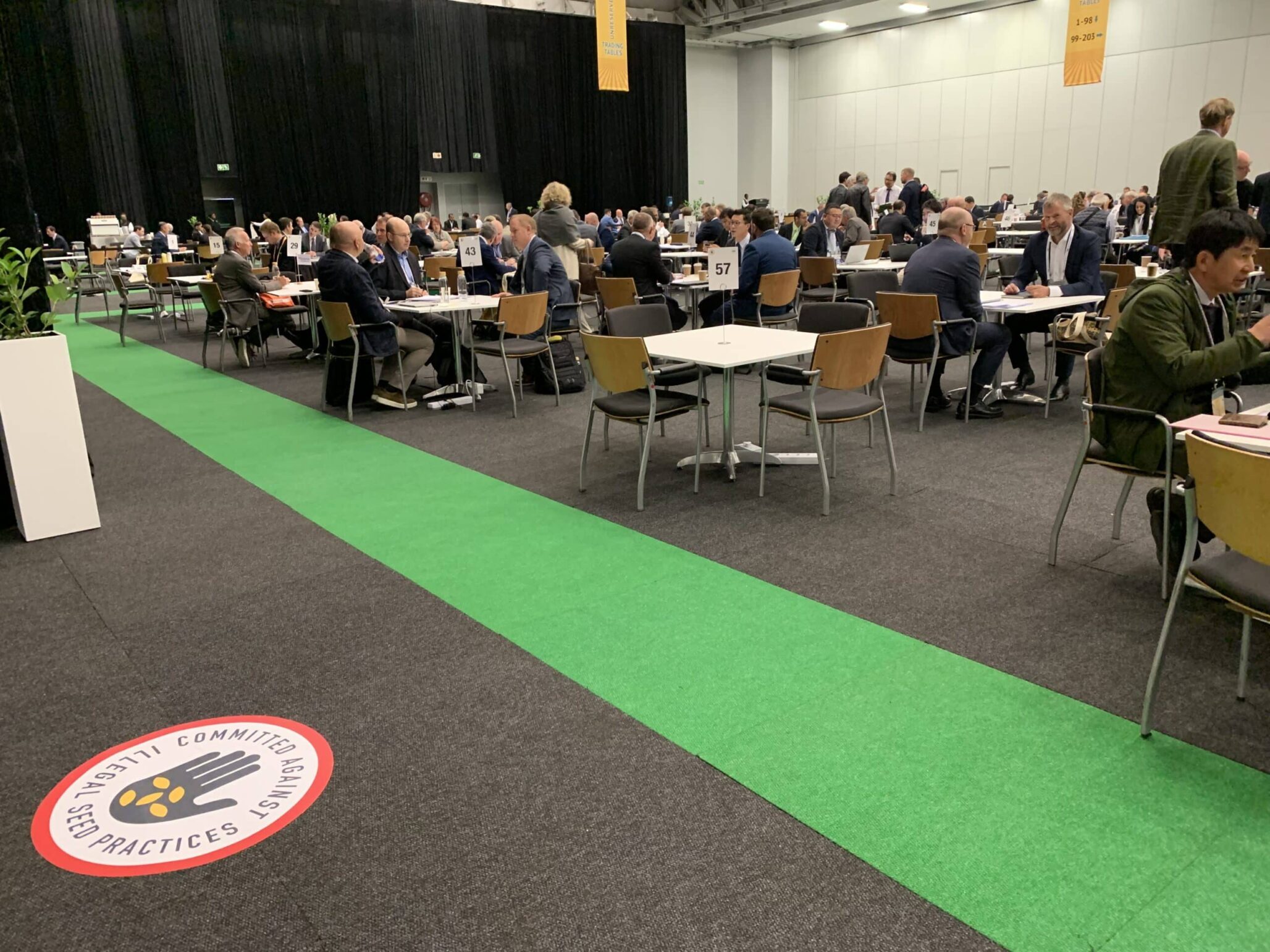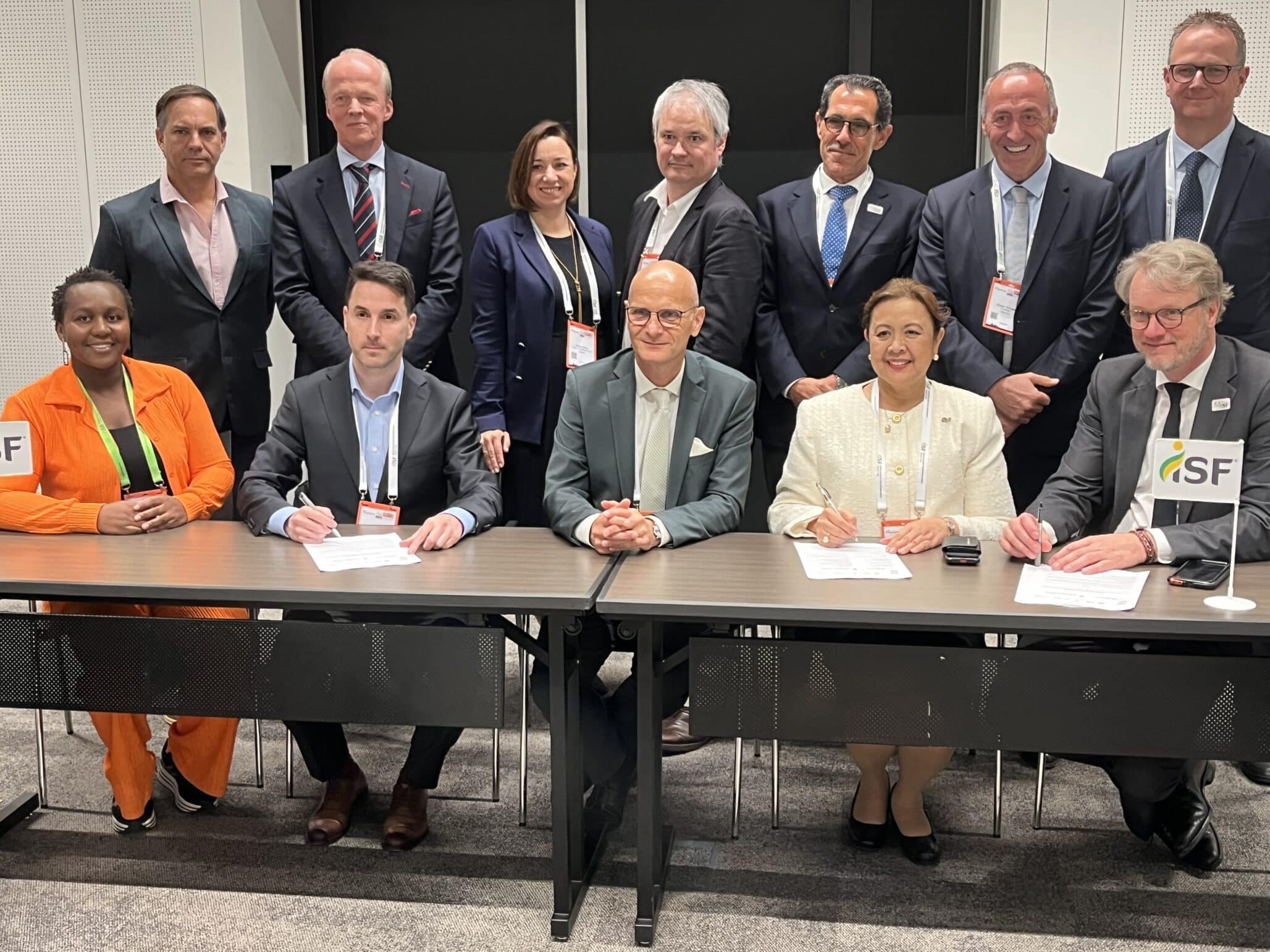In recent years, there has been an increase in illegal seed practices, including counterfeit seeds, fake seeds, fraudulent labelling, intellectual property infringements, regulatory offences, trademark infringements and thefts of proprietary material. In some countries during recent growing seasons, more than 50 per cent of crop seed sold to farmers was illegal or counterfeit. This is going on despite strong efforts by national, regional and global seed associations to halt these practices, a.o. through information and raised awareness. Furthermore, Breeders Trust and other dedicated organisations are now running court cases against infringers.
Different Illegal Seed Practices
There are in fact several different types of illegal seed practices. In Euroseeds we deal with two types, namely regulatory offences, and intellectual offences. The first type comprises for example the selling of not-certified seed of fodder crops and amenity grasses. This is a clear offence under the EU Seed Marketing Directives. And concerning the violation of IP rights, plant breeding and seed companies are encouraged to apply for plant variety protection on their varieties. In that way, they have a better ground for protecting the varieties they put to the market in the case of infringement. There are many possible ways of fraud – so it is vital to know your business partners in the whole business chain as the system is largely based on trust between the operators and the customers.
Tools to stop Illegal Seed Practices
I am happy that the seed associations, such as Euroseeds and the International Seed Federation (ISF) are undertaking several actions to reduce these illegal seed practices. The main tool is information and awareness, as some operators in the seed supply chain are not in detail aware that they may be in violation of the law, e.g., infringing plant variety rights. In addition, end users are sometimes not aware of the labelling requirements or if they can freely use Farm Saved Seeds (FSS).

In Euroseeds, in the Section for Fodder crops and amenity Grasses (SFG), we have developed a ‘code of conduct’, which is now signed by the majority of the professional operators in this business field. Furthermore, to help seed companies in their struggle against illegal seed practices, we have developed a good and very informative toolkit for companies in the forage and turf sector. This guides the companies on how to enforce their plant variety protection and how to act in cases of regulatory offences.
Global Guideline
In the ISF Forage and Turf Advisory Group, we are currently working on a ‘Production guideline’ to assist the multiplication process between seed companies and farmers. We have especially focused on critical points in the process. All this is to make sure that the multiplication process takes place in mutual understanding between seed companies and seed farmers.
EU Efforts
In the EU context many seed companies have faced one or more cases of illegal seed practices involving their varieties, and therefore there has been a strong focus on the problem in Europe. In Euroseeds this was done through the development of the aforementioned tool kit. Additionally, grass seed and potato companies have formed the Breeders Trust, which is supporting the participating companies in the implementation and enforcement of their Plant Breeders’ Rights protection and reduce the illegal trade in plant propagation material.
Seed Fraud Network
I am happy to report that also the European Commission has set up the voluntary EU Seed Fraud Network (SFN). This was done in response to some fraudulent cases in relation to official labels and imports of seed lots. And it has the aim of facilitating the cooperation among the EU countries in matters where the national authorities are confronted with possible intentional violations of the Directives on marketing seed and other plant reproductive material with a cross-border impact.
Working Together
I would like to underline that it is incredibly important that all the actors in the seed sector work together on this topic. Seed fraud may compromise the production of food and feed e.g., if farmers do not get the seeds, he/she believes is buying, the label may be falsified, or the contents of the seed bag may be something else than intended. On top of that, the reliability of the seed sector is at stake when some actors in the chain perform illegal activities.
In short: from all sides and from different angles, there are strong and consolidated efforts to dissuade infringers from engaging in illegal seed practices. So, my advice to companies which are engaging in illegal seed practices or are contemplating to do so: don’t do it! You are going to get caught, sooner or later.
Editor’s Note: Nils Elmegaard is Secretary General at the Danish Seed Council. The toolkit for intellectual property enforcement and Regulatory offences can be found here along with other material:https://euroseeds.eu/app/uploads/2020/09/17.0024.1-SFG-Tool-Kit.pdf












